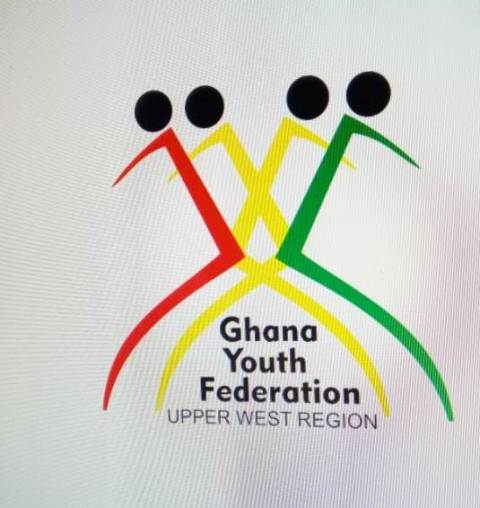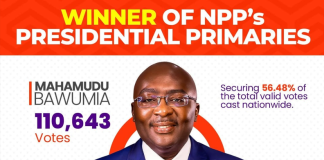With a kin observation and scrutiny of the 2022 Ghana budget and matters arising from national discussions on the planned introduction of an electronic transactions levy by the government of Ghana, on behalf of the youth of Upper West Region, the Upper West Regional youth Federation with no reservation are against the implementation of the said E-Levy.
The government announced the introduction of an electronic transfer levy (e-levy) in the 2022 budget. When approved, the proposed levy will charge 1.75% of the value of electronic transactions. The levy covers mobile money payments, banks transfers, merchant payments, and inward remittances. In the case of inward remittances, the charge will be assumed by the recipient, whiles the originator will bear the charge for the other modes of payments. In his statement, the finance minister said the e-levy would “widen the tax net and rope in the informal sector.”
Our rejections are based on the following as may also be stipulated by other concerned citizens or groups on the subject matter.
Reduction in electronic transactions
The government of Ghana in recent times has been embarking on digitalizing the economy which is geared towards reducing the use of cash. For instance, the government has digitalized payments for driver’s licenses and passports. Also, the Central Bank is working on its version of the mobile money called the e-cedi, and most banks are digitizing their services. Currently, mobile money is one of the country’s widely accessible electronic payments platforms.
In any basic economics class, an increase in price on goods or services is expected to reduce its demand. The imposition of the e-levy means that the cost of using the electronic platform will increase, leading to people not being willing to use such platforms. The displeasure that comes with the e-levy will eventually affect the country’s current digitization agenda. The government is betting on the idea that people are already addicted to the digitalization agenda, and the e-levy will have minimal impact on the use of electronic systems. But, in a developing country like Ghana, people are more likely to choose lower-cost services; in this case, people will go back to using cash instead of the convenience the electronic platforms offer. For example, the youth who would normally use mobile money to pay for services or for splitting bills will now rather pay with cash to avoid the e-levy. This could also derail the growth of the Ghanaian FinTech ecosystem by making Ghana unattractive for Fintech startups.
The short-term effects of the e-levy could be even lower tax revenue for the government due to a reduction in usage, and a long-term effect would be the decline in employment in the FinTech ecosystem.
Double taxation
The proposed E-levy is a form of an automatic payment tax (APT), a uniform tax on all electronic transactions.
Double taxation refers to the imposition of taxes on the same income, assets, or financial transaction at two different points in time. For example, suppose a government worker gets paid a salary that has already been income taxed. But, with the e-levy, the salary will now be subject to another tax of 1.75% when it hits the bank account. In addition, when you want to transfer money to your parents or siblings via mobile money of any amount above GHC100, you get another tax of 1.75%, leading to more taxation.
This double taxation has a pronounced negative economic impact, particularly on wages. The effects of double taxation would be even severe in this COVID-19 pandemic era when the GDP growth rate is shrinking (according to the 2022 budget, the growth rate for 2020 was 0.4% and 4.7% in 2021 compared to 6.2% and 6.5% in 2018 and 2019, respectively). Because, with the imposition of the e-levy, loans procured from family and friends will be taxed, and capital for business will also be taxed. This means the imposition of this e-levy will only distort the economy and harm productivity even further.
As a result of the government’s inability to devise innovative solutions to tax the informal sector, the E-Levy appears to be the simplest way out. However, the implementation of the E-Levy would have negative impacts on businesses and impede the functioning of Ghana’s financial system and the real economy.
Implementing the E-levy would equally result in the loss of jobs in the e-commerce and fintech industries due to a reduction in online sales.
Also, there would be a return to increased cash transactions, and it may send many Ghanaians who do not have bank accounts back to the days of financial exclusion. More worrisome is the possibility of a chunk of the levy’s burden falling on the shoulders of the rural poor, who have limited financial payment options and often depend on inward means of remittances.
According to many other analysts, implementing the E-levy would equally result in the loss of jobs in the e-commerce and fintech industries due to a reduction in online sales. In Uganda, for example, the imposition of a 1 percent tax on MOMO transactions led to a drastic reduction in its usage by 24 percent, and values of peer-to-peer transactions fell by more than 50 percent. In light of the Uganda experience, the International Monetary Fund has subsequently warned that Ghana’s rural poor were most likely to be affected disproportionately by the MOMO tax.
However, like in Uganda, e-commerce is still in its early stages in Ghana.
To fast-track the sector’s ability to withstand radical changes, the Ghanaian government should eliminate barriers to e-payments and encourage financial inclusion. The government should view MOMO transactions as an enabler to engage and capture tax revenue from the growing e-commerce sector instead of imposing E-Levy on MOMO payments. This solution should be a serious consideration because as the economy is becoming increasingly digitized and more transactions are moving online and outside of local tax regions, it costs the country billions in lost tax revenues.
In conclusion
The e-levy is poorly thought out, lazy, and insensitive way of generating revenue because it is taxing the means of payment and not income or profit and for that reason we, the Upper West Regional Youth Federation, join most well-meaning Ghanaians to reject it!
The E-Levy Bill could pose challenges for youth employment and give rise to money laundering offences.
Ladies and gentlemen of the media, the Upper West Regional Youth Federation will remain resolute on its stands on the matter and will stand firm with all stakeholders to make sure this tax policy is not added to the already long list of taxes.
We shall resort to other peaceful means to ensure the government listens to us if our call and other stakeholder’s calls are not adhered to.
May God grants us a prosperous nation where jobs and financial security is assured. Thank you
Long-Live Ghana!
Long-Live the Youth of Ghana!
Long-live Upper West Regional Youth Federation
SIGNED
Haruna Zinentah
Regional President
0246 669 650
Casandra AnapagaAyeebo
Secretary
0245 952 548
ZonYelikang Lilian
P.R.O
0205796272
THANK YOU for constantly reading our stories. Kindly like, comment and SHARE stories on all social media platforms for more entertaining updates!
TO GET YOUR EXCLUSIVE INFO PUBLISHED ONLINE?
Call or WhatsApp our Editor on +233208291107/0546509004 for Your Massive promo. You can equally email your stories or articles to info@xpressghonline.com or fuzzygh2016@gmail.com and we’ll surely put them online at www.xpressghonline.com or www.smartghonline.com












![Deenfly Ft Superboi Santana – Party Time [Prod By Asaynigi Recordz]](https://xpressghonline.com/wp-content/uploads/Deenfly-Ft-Superboi-Santana--100x70.jpg)
![Best Gally – Nubanie [Prod By Gallybeatz]](https://xpressghonline.com/wp-content/uploads/2019/05/gally1-100x70.jpg)
![Best Gally – Success [Prod By Gallybeatz]](https://xpressghonline.com/wp-content/uploads/2019/06/gally-s-100x70.jpg)
